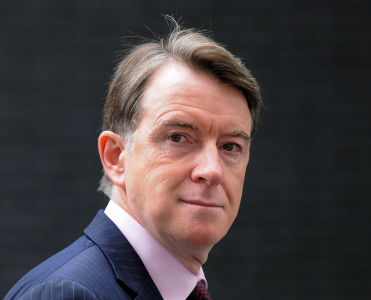Today, a week since the Paradise Papers, the EU has failed to come to agreement on improving its anti-money laundering rules, after months of negotiations around revisions to the 4th Anti-Money Laundering Directive. In a week where secrecy has dominated the headlines, the EU has wasted an opportunity to take action on transparency of the real ‘beneficial’ owners behind companies and trusts in the EU, according to Transparency International EU and Global Witness.
This morning European Commissioner, Pierre Moscovici, confirmed beneficial ownership information should be made public to fight against the kind of opaque structures revealed in the Paradise Papers, and deeply regretted the lack of progress in the negotiations. He said, “Citizens would not understand our inaction after the new warning shot of the Paradise Papers”.
“This was a key test for the EU’s ability to react quickly to the issues which citizens really care about, and on this test the EU has failed, only a week after the Paradise Papers and the blame lies squarely with EU governments,” said Laure Brillaud, Policy Officer for Anti-Money Laundering at Transparency International EU. “If the Estonians want their presidency to be remembered for EU action on secrecy, they must show leadership and get a deal done on beneficial ownership in December,” said Brillaud.
“While the European Parliament has responded to public outcry and fully backed full transparency of real owners behind EU companies and trusts, big member states, such as Germany and the UK, have spent the last year blocking proposed changes that would tackle these problems.” said Rachel Owens, Head of EU Advocacy at Global Witness “Countries in favour of greater transparency – including France, Spain and Portugal – have failed to speak out forcefully. By failing to act they are all complicit in this corrupt system,” concluded Owens.
ENDS
Notes to editors:
- Beneficial ownership refers to the individual people who ultimately own or control companies or trusts. When beneficial ownership is hidden, companies and trusts are used as the ‘getaway cars’ for corruption, money laundering and tax evasion with devastating impacts for people across and beyond Europe.
- Public registers of beneficial ownership help businesses know who they are doing business with, helping journalists and investigators detect crime and ensuring law enforcement from other countries can access it.
- The next trilogue negotiation is expected to take place on December 13th, where the European Parliament, European Commission and Estonian Council Presidency will be expected reach a final deal to close the file.
- For more information on how anonymous trusts were used in cases revealed by the Paradise Papers see Global Witness’ briefing here.
Contact:
Transparency International EU
Alex Johnson,
Communications Officer,
Transparency International EU
ajohnson@transparency.org
+32 485 89 0825
Global Witness
Rachel Owens,
Head of EU Advocacy,
Global Witness
rowens@globalwitness.org
+32 487 80 5069




